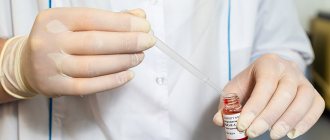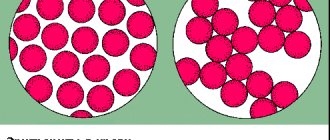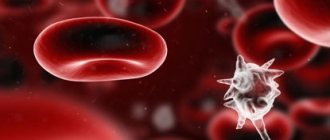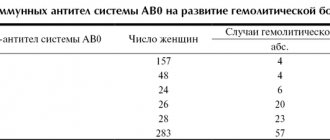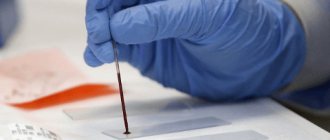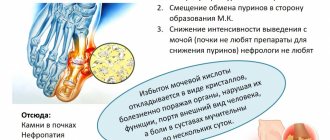The science of blood transfusion is called transfusiology. For many centuries, healers have tried to treat people using blood replacement. It was believed that in this way a person could be restored to health and youth. Sometimes it was possible to improve the patient's condition, but more often they died.
The system of blood groups based on AB0 antigens was discovered and accepted by doctors only in 1900. They didn’t know what the Rh factor was at that time, but they guessed that when receiving blood transfusions it was important to check not only group compatibility, but also individual compatibility.
What it is
Only in 1940 was it possible to obtain a special serum from the blood of rabbits, which were previously injected with red blood cells from a rhesus monkey. As the researchers showed, it caused agglutination (sticking together) of red blood cells in 85% of cases of connection with the blood of different people. So the serum began to be called Rh-positive due to the presence of a certain factor in it, called the Rh factor.
It was later found that the Rh factor is a special protein located on the cell membrane of red blood cells that has antigenic properties. The Rh blood factor is present in 85% of Europeans, 99% of residents of India and Asian countries. Those people who do not have this protein are called Rh negative.
It is interesting that the positive and negative Rh factor depends on the geographic residence of the person and nationality: if on average 15% of white-skinned Europeans do not have the Rh factor, then the Basques, a nationality in Spain, give a negative reaction result in 1/3. The black population of the planet has a significantly lower rate, about 7% do not have this protein.
What this means for the people is still unclear. Even ufologists study the Basques, suspecting them to be descendants of settlers from other planets. It is an established fact that people with negative Rh are more prone to unusual abilities.
To date, 50 protein formations have been associated with the name. The most important factors are D, C, c, E and e. The terms “Rh negative” and “Rh positive” are used. They mean only D antigen.
Diet tips
In the last century, the theory of the dependence of nutrition on blood type was very popular. The Rh factor was not taken into account at all. It was believed that there were certain foods that were most important for a person with each blood type. They also pointed out unhealthy foods that pollute the body and contribute to the occurrence of diseases.
Here's someone who only ate meat
The origin of all people with the first group is genetically related to the first anthropoid individuals that did not have antigens in the blood. They hunted and ate only meat. Due to drastic environmental changes, it is impossible for today’s “hunters” to consume meat alone; they will also need other healthy products.
The diet was proposed to be followed throughout life. Although the theory has long been refuted by long-term research, it still has followers. Therefore, we present everything that concerns the first blood group.
What is possible
People with this trait are considered obese. A balanced diet requires limiting sweets and flour products.
- Dishes made from lean beef or lamb, fish, and seafood are shown.
- Porridge should be prepared only from whole grains (buckwheat is the most useful).
- You should give preference to dishes made from pumpkin, broccoli, spinach, seaweed with onions, and parsley.
- You can drink green tea, herbal teas, rosehip decoction.
Conventional recommendations will have to be taken critically
What not to do
It is not recommended to combine milk and meat dishes, especially pork, in a daily diet.
- Sausage, smoked meats, and fatty meats are prohibited.
- Dairy products and eggs.
- It is proposed to give up sour fruits and berries, olives, citrus fruits, oranges, tangerines, and strawberries.
- Oatmeal and semolina are limited.
- Butter, hard cheeses, ice cream, ketchup, and mayonnaise are considered contraindicated.
- Potatoes, legumes, cabbage.
- Black tea, coffee, orange juice, kefir and milk.
The theoretical foundations of nutrition based on blood type provide for a gradual transition to a strict diet and allow temporary relaxations. Some consider this approach the only rational way to lose weight or maintain weight and health.
Modern medicine does not approve of excesses in nutrition, but is also against strict vegetarianism. Food must contain all the necessary components, otherwise it will take a long time to restore the imbalance with medications.
How is the Rh factor determined?
The Rh factor can be determined in a laboratory way in venous blood. Main indications for analysis:
Donors must have their Rh factor determined.
- donation;
- upcoming surgery;
- before blood transfusion;
- planned pregnancy.
The Rh factor and blood type are required to be indicated on the dog tags of military personnel participating in combat operations. This is necessary so that if an emergency transfusion is necessary, you do not waste time on laboratory tests.
It is believed that the indicator is transmitted at the genetic level and cannot change during life. But with the successes in organ and tissue transplantation, there have so far been several cases in the world where a change in blood rhesus occurred to that of a donor.
Determination of Rh status is carried out with standard sera of two types (for control). A large drop of serum is dropped onto a Petri dish in different places, then a drop of the blood being tested is applied nearby and mixed carefully with glass rods. Place the cup in a water bath for 10 minutes.
The results of determining the group and rhesus, the gluing of red blood cells is visible in 2-4 cups
Then the result is read: if flakes of red blood cells are visible in both drops, then a positive Rh test is undoubtedly given. But, if doubt arises or if red blood cell agglomeration is visible in only one drop, the result cannot be considered final. The analysis is repeated with additional series of sera or another method.
Complexes with this research
Future dad Comprehensive examination to prepare a couple for conception 4,990 ₽ Composition
Expanded hospital complex Expanded infectious screening for prevention and hospitalization 4,270 ₽ Composition
Preparation for IVF for a man Examination to prepare a man for the IVF procedure 3,710 ₽ Composition
IN OTHER COMPLEXES
- Pregnancy planning. Clinical indicators RUB 3,620
- Joining IVF RUB 14,350
- Examination during pregnancy. 1st trimester 9,770 RUR
Designations in the decoding of a blood test
It is customary to denote the presence or absence of the Rh factor with plus (+) and minus (-) signs. Possible results in combination with blood group in the ABO system are shown in the table:
| Blood groups | Designation taking into account the presence of D antigen | Designation taking into account the absence of D antigen |
| first (0) | 0 Rh+ | 0 Rh- |
| second (A) | A Rh+ | A Rh- |
| third (B) | B Rh+ | In Rh- |
| fourth (AB) | AB Rh+ | AB Rh- |
In the hospital, the analysis performed must be indicated on the title page of the medical history. For donors, if they wish, information about the group and Rh factor is included in the passport.
Rhesus conflict and its causes
Rh conflict is the protective reaction of an Rh-negative organism to the introduction of Rh+ blood during transfusion. The same process is observed during pregnancy in Rh-women, if the fetus acquires paternal Rh positive.
At the same time, antibodies are formed in the blood, which are ready to destroy the foreign agent.
During blood transfusion, not only group and Rh compatibility is checked, but also individual compatibility. Doctors know that there is a “scarce” unique blood type that can be transfused to everyone. This is the first 0 Rh-. Donors with such blood are specially registered at the blood transfusion station. They are encouraged to donate blood for a “bank” in case of emergency.
The absence of the Rh factor is not considered a disease. This condition is only taken into account during pregnancy in Rh women. Obstetricians and gynecologists are required to refer future parents for testing. Possible options:
- if the child’s father also has blood negative for the D antigen, there is no reason to be afraid, there will be no conflict;
- the father, unlike the mother, has Rh-positive blood - you need to wait for an immune response from the mother’s body to the fetus, which has taken the “father’s” side;
- There will be no Rhesus conflict if the fetus takes on the “mother’s” inheritance.
Problem filter
I heard that the problem of Rh sensitization can be solved with the help of plasmapheresis. But can pregnant women do this?
Margarita, Yaroslavl
– Not only is it possible, but it is also necessary! By removing antibodies that are harmful to the fetus from the bloodstream or reducing their concentration, plasmapheresis (blood purification method) is a very effective prevention of Rh conflict. True, if a woman has so-called complete antibodies in her blood, which are slowly synthesized and more difficult to pass the placental barrier. It is much more difficult to “pull out” a pregnancy with incomplete antibodies: they are synthesized in 10–14 hours, and it is impossible to “cleanse the blood” every day. Minimum – in 1–1.5 days. In order to maintain a normal antibody titer, some women have to undergo this procedure throughout their pregnancy.
Plasmapheresis has become a real lifesaver in the treatment of toxicosis in the first and second half of pregnancy, as well as in placental insufficiency, which is the main cause of intrauterine hypoxia (oxygen starvation) and fetal growth retardation.
Maximum risk for women
The second and subsequent pregnancies are considered the most dangerous. Because the mother’s body already has antibodies to the Rh factor, and they begin to destroy the fetus from the moment of conception. Women after abortions should be especially wary. Despite the absence of childbirth, enough antibodies accumulate in their blood for the development of a conflict situation.
The fetus has equal opportunities to acquire “father’s” or “mother’s” Rhesus
During the first pregnancy, the immune system is triggered towards the end of the term, which is reflected in the development of hemolytic jaundice and erythroblastosis in the newborn (diseases associated with damage to the baby’s red blood cells). Mother's antibodies pass through the placenta and disrupt the functioning of the liver, spleen, and brain. In children, there may be consequences of anemia in the development of speech and hearing.
Measures to prevent Rhesus conflict
Modern medicine has learned to cope with the problem of Rh incompatibility. For an Rh-negative woman, it is recommended to continue the first pregnancy. In any case, it will be more favorable for the fetus.
Since it is impossible to predict in advance which Rhesus will take the fetus, the woman is most intensively examined for antibodies. Their increase is used to judge whether the child is Rh positive.
Until the eight-month period, the analysis is carried out monthly, then twice a month, and from the 36th week every 7 days. To prevent a possible conflict, a special anti-Rhesus immunoglobulin is introduced, containing special antibodies to bind the mother's antibodies.
It is administered prophylactically to Rh-negative women in the first 72 hours after abortion and during pregnancy. Obstetricians recommend medical abortions up to the seventh week. It is from the eighth week that antibodies begin to be produced.
Timely determination of the Rh factor allows you to prevent pathology during childbirth and preserve healthy children. Millions of lives are saved by blood products used in accordance with the group and rhesus. People without this factor should not be discouraged; on the contrary, expect manifestations of extraordinary abilities and increased genius.
